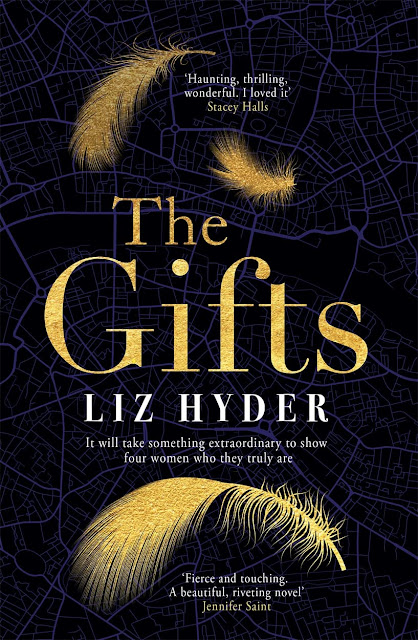Book Review - The Gifts
Liz Hyder sold the film rights to her YA debut, Bearmouth, a dystopian thriller about child miners fighting injustice, before it had arrived in the bookshops. In The Gifts, a Victorian novel for adults, four feisty women struggle against the constraints of a patriarchal society. When two of them grow wings, they are exploited by a ruthless surgeon, Edward Meake, who believes he is serving science and God’s purpose.
Etta, inspired by the real-life Mary McGhie from Ludlow, is the daughter of a freed slave and a former plantation owner. After their father’s death her stepbrother banishes her from the family house and she resides in the keeper’s cottage with her beloved dog, Scout. A budding botanist, Etta spends her days tramping over the Shropshire countryside classifying and sketching plants.
Natalya, another outcast, is a mesmerising storyteller. She travels from Orkney to London hoping for a new start. Separately, the two women undergo a strange epiphany and sprout wings. There is little explanation for their transformation except their shared belief that their gift is related to a deep connection to the land and “the wildness within us”.
Mary lives with her Uncle Jos and demonstrates a talent for writing and sniffing out a good news story. Annie (the least rounded of the female characters) is Edward’s wife and a gifted artist. As the women strive for autonomy, we follow their fates over the course of one month. Their paths finally converge in Meake’s dissecting room. The surgeon has imprisoned Etta and Natalya, convinced they are “gifts” from God.
It’s a stirring tale of female empowerment, full of vivid imagery and evocative settings. The repetitive prose could, however, have been pared back and Hyder’s descriptions are sometimes hackneyed. She crams in a lot of detail and a multitude of voices. The episodic structure gives the novel pace but dilutes tension. Nevertheless, the novel’s scope is impressive and The Gifts is sure to win Hyder new fans and, quite possibly, another film deal.
Originally published in The Observer
